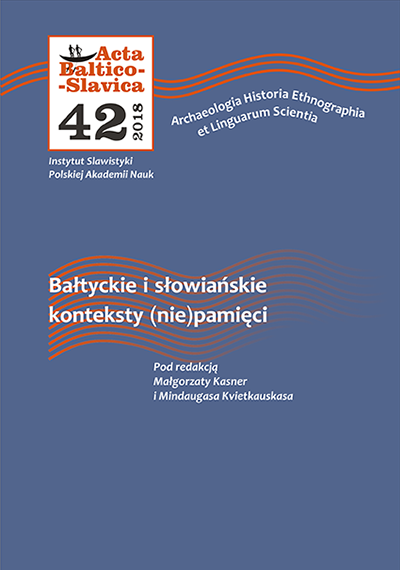A challenge to collective memory: Yitskhok Rudashevski’s Diary of the Vilna Ghetto
A challenge to collective memory: Yitskhok Rudashevski’s Diary of the Vilna Ghetto
Author(s): Mindaugas KvietkauskasSubject(s): Cultural history, Jewish studies, Lithuanian Literature, History of the Holocaust, Politics of History/Memory
Published by: Instytut Slawistyki Polskiej Akademii Nauk
Keywords: Holocaust; child’s diary; memory culture; site of memory; conflict of memories; Vilnius ghetto; Yitskhok Rudashevski;
Summary/Abstract: This article aims to analyse the diary of Yitskhok Rudashevski (1927–1943), the story of its writing and publication and the existing biographical material about the author. It attempts to answer the question of what is or could be the significance of this lieu de mémoire for the current developments in Holocaust memory culture in Lithuania. The adopted definitions of cultural and collective memory and sites of memory are based on the concepts proposed by Jan and Aleida Assmann and Pierre Nora. On the one hand, the diary written by a child in the Vilnius ghetto is of major documentary, moral and aesthetic significance and stimulates individual empathy. On the other hand, the text raises acute issues reflecting a conflict between different memory narratives and interpretations of history. Pro-Soviet sympathies of the author, negative imagery of Lithuanians and certain deheroisation of the ghetto community make the text a “problematic” memory site. These challenges of the diary are interpreted as indicators showing whether contemporary Holocaust narrative in Lithuania is already mature enough to accept the dialogical forms of cultural memory.
Journal: Acta Baltico Slavica
- Issue Year: 2018
- Issue No: 42
- Page Range: 99-123
- Page Count: 25
- Language: English

